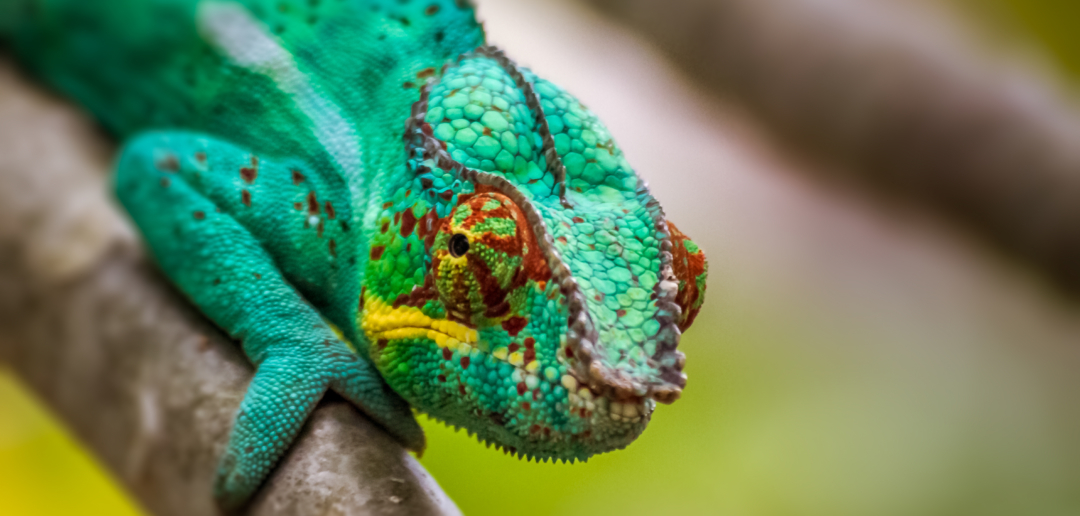GEO BON moves headquarters to Montréal to capitalize on the city’s AI expertise

The Group on Earth Observations – Biodiversity Observation Network (GEO BON), a global research network and community of practice dedicated to improve monitoring of Earth’s biodiversity, announces the relocation of its headquarters from Leipzig, Germany, to Montréal, Canada.
The Québec Centre for Biodiversity Science (QCBS) won the bid to host GEO BON, in partnership with the Fonds de recherche du Québec—Natures et Technologies, McGill University, Université de Montréal and Université de Sherbrooke. This effort was made in collaboration with Montréal International—which is supported in its mandate to support international organizations by the Government of Canada, the Government of Québec and the City of Montréal.
GEO BON responds to the urgent need for the best possible data and knowledge to support decisions to avoid unsustainable biodiversity loss. The information it provides will support international and national actions to meet biodiversity targets and Sustainable Development Goals.
Speaking about the move to Montréal, Andrew Gonzalez, Prof. at McGill University, Director of the QCBS, and co-Chair elect of GEO BON said: “We are thrilled to support the next phase in the development of GEO BON and the essential research it conducts. We are grateful for the support of our partners that will allow us to build a world-class headquarters for GEO BON. The urgency of the biodiversity crisis requires that we intensify our efforts to understand its causes and act to reverse these trends using the knowledge provided by the GEO BON community.”
Given its extensive expertise in supporting international organizations, Montréal International put its exceptional strategic know-how behind the bid to host GEO BON. “We are happy to be welcoming GEO BON to Montréal. The city is a strategic pole in this area, as it is already home to many international sustainable development organizations such as the Secretariat of the Convention on Biological Diversity and the International Secretariat for Water. The presence of this new organization in our region will help promote Montréal’s leadership in sustainable development,” said Stéphane Paquet, President and CEO of Montréal International.
“Québec already hosts over 70 international agencies that contribute not only to the economic prosperity of its cities and regions, but also to the advancement of research in numerous fields of activity. So it’s a particular honour that GEO BON has decided to locate in Montréal. Its contributions and expertise in climate change and artificial intelligence—two key priorities for the Government of Québec—will be most welcome!” said Nadine Girault, Minister of International Relations and La Francophonie.”
“The addition of a new international organization to Montréal is excellent news. I am very pleased that GEO BON has chosen to locate its headquarters here. We are firmly committed, both locally and internationally, to protecting the environment, safeguarding our natural heritage and preserving biodiversity. The presence of GEO BON will not only strengthen our leadership, but also accelerate the international movement towards green and healthy cities,” said Montréal Mayor Valérie Plante.
“We are all most excited that Montréal has been chosen as host city for GEO BON, this is a major addition to a group of international organisations based in our city and universities. Along with the Secretariat of the Convention for Biological Diversity, Future Earth, GEO BON will add to our global impact in the field of sustainable development, a priority for the FRQ,” explained Rémi Quirion, Chief Scientist, Fonds de Recherche du Québec.
“This selection confirms both Montréal as a world-leader in supporting organizations focused on sustainability, and McGill University as a major centre of research into this field of crucial importance to our planet,” declared Martha Crago, Vice-Principal, Research and Innovation, at McGill University.
For the Université de Montréal, the partnership with GEO BON builds on two of its internationally recognized strengths: artificial intelligence and natural sciences. “This natural alliance will enrich the perspectives of researchers and decision makers in order to better understand and protect the world’s biodiversity. For Montréal’s scientific community, the arrival of GEO BON is both a recognition of the excellence of its work and an opportunity for high-level development,” says Daniel Jutras, Rector of the Université de Montréal.
The Université de Sherbrooke is enthusiastic to be associated with the arrival of the GEO BON Secretariat in Québec. “This will necessarily have a positive effect on the promotion of collaborative research work on the importance of biodiversity and on the interest that students have in its graduate studies programs associated with its unifying theme ‘climate change and environment’,” said Pierre Cossette, Rector of the Université de Sherbrooke.
“By being located in Montréal, GEO BON will benefit from the support of an active research community with leading expertise in applying artificial intelligence and data science to biodiversity and issues; this collaboration will transform the way we think about biodiversity data processing at the global scale,” added Timothée Poisot, professor at the Université de Montréal, member of the QCBS and member of the Scientific Council of Calcul Québec.
Current GEO BON co-Chairs Mike Gill and Henrique Pereira: “The GEO BON Network has made great progress over the past decade, going from initial concept to the establishment of a systematic, global network for improved biodiversity observations. The passing of the secretariat and Chair to the Québec Centre for Biodiversity Science represents an exciting milestone for this global network. The next decade is crucial for bending the curve on biodiversity loss. The new secretariat’s leadership and excellence in biodiversity science and conservation, together with its strategic location and relations with the Secretariat of the Convention on Biological Diversity will ensure that GEOBON remains at the centre of international efforts to improve biodiversity observations.”
About GEO BON
The Group on Earth Observations – Biodiversity Observation Network (GEO BON) is an initiative aimed at improving the availability of biodiversity change data to decision makers and scientists in support of policy. GEO BON initiates and coordinates efforts to design and implement interoperable national and regional biodiversity monitoring programs. With a rapidly growing network of close to 1 000 members from more than 550 institutions and 90 countries, GEO BON combines state-of-the-art research, with the common goal of enhancing the value of biodiversity data and making policy-ready recommendations to decision makers based on observed trends in animal, plant and microbial life. GEO BON will support the tracking and implementation of the next generation of biodiversity targets aimed at halting the runaway extinction of species and the degradation of the ecosystems that provide so many benefits to human society.






